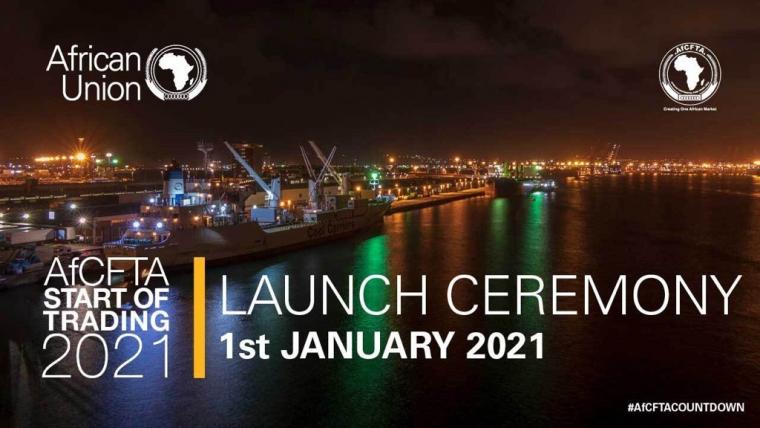Ressources
Agenda 2063 is Africa’s development blueprint to achieve inclusive and sustainable socio-economic development over a 50-year period.

L'UA offre des opportunités passionnantes pour s'impliquer dans la définition des politiques continentales et la mise en œuvre des programmes de développement qui ont un impact sur la vie des citoyens africains partout dans le monde. Pour en savoir plus, consultez les liens à droite.

Promouvoir la croissance et le développement économique de l'Afrique en se faisant le champion de l'inclusion des citoyens et du renforcement de la coopération et de l'intégration des États africains.

L'Agenda 2063 est le plan directeur et le plan directeur pour faire de l'Afrique la locomotive mondiale de l'avenir. C'est le cadre stratégique pour la réalisation de l'objectif de développement inclusif et durable de l'Afrique et une manifestation concrète de la volonté panafricaine d'unité, d'autodétermination, de liberté, de progrès et de prospérité collective poursuivie par le panafricanisme et la Renaissance africaine.

S.E. le Président William Samoei Ruto (PhD), Président de la République du Kenya et Champion de l'Union africaine pour la réforme institutionnelle. S.E. Ruto a été nommé lors de la 37ème Conférence des chefs d'État et de gouvernement en février 2024 pour promouvoir le processus de réforme institutionnelle de l'UA, succédant à S.E. Paul Kagame, Président de la République du Rwanda, qui a dirigé la mise en œuvre du processus de réforme depuis 2016.


L'UA offre des opportunités passionnantes pour s'impliquer dans la définition des politiques continentales et la mise en œuvre des programmes de développement qui ont un impact sur la vie des citoyens africains partout dans le monde. Pour en savoir plus, consultez les liens à droite.

Trading under the Africa Continental Free Trade Area Agreement began on 1 January 2021. As of 5 December 2020, 54 Member States had signed the Agreement, 34 had deposited their instruments of ratification, and 41 countries/customs unions had submitted their tariff offers, including the East African Community (EAC) and the Economic Community of West African States (ECOWAS).
The 13th Extraordinary Session of the Assembly, held by videoconference on 5 December 2020 to discuss the historic economic integration Agreement, decided that the exchange of tariff concessions between State Parties will be conditioned on the principle of reciprocity in terms of product line coverage, and tariff reduction schedules that are aligned with the agreed modalities. Heads of State and Government endorsed the declaration on the Risk of Investor-State Dispute Settlement (ISDS) with respect to COVID-19 pandemic related measures, as adopted by AU Ministers of Trade (AMOT), and the establishment of the African Business Council (AfBC), which is part of the AfCFTA Architecture. They also underscored the urgent need for Member States to kick-start trading activities under the Agreement.
The AfCFTA will be one of the largest free trade area since the formation of the World Trade Organization (WTO), given Africa’s population of 1.2 billion people, which is expected to grow to 2.5 billion by 2050. Some of its expected benefits include:
Strengthening Africa’s economic and commercial diplomacy.
The AfCFTA Agreement entered into force on 30 May 2019 following the deposit of the required minimum number of 22 instruments of ratification deposited by AU Member States. Its operational phase was launched on 7 July 2019 at an AU summit in Niamey, Niger, during which occasion it was announced that Ghana would host the AfCFTA Secretariat.
The five key instruments adopted by the Assembly in July 2019 were the: rules of origin; tariff concessions; online mechanism on monitoring, reporting and elimination of non-tariff barriers (NTBs); Pan-African payment and settlement system and the African Trade Observatory information portal.
In February 2020, the Assembly appointed Mr Wamkele Mene of South Africa, as Secretary-General of the AfCFTA. The Secretariat building in Accra, Ghana, was officially opened in August 2020. The Secretariat facilitates the efficient conduct of business of the AfCFTA, including developing the working programme and the annual budget, and implementing the decisions of AU Ministers and Heads of State and Government.
See https://au.int/en/treaties for the full AfCFTA Agreement and the ratification status list. Also see https://au.int/cfta for more information about AfCFTA.
Agenda 2063 is Africa’s development blueprint to achieve inclusive and sustainable socio-economic development over a 50-year period.
AUSSOM Ministerial Meeting report
